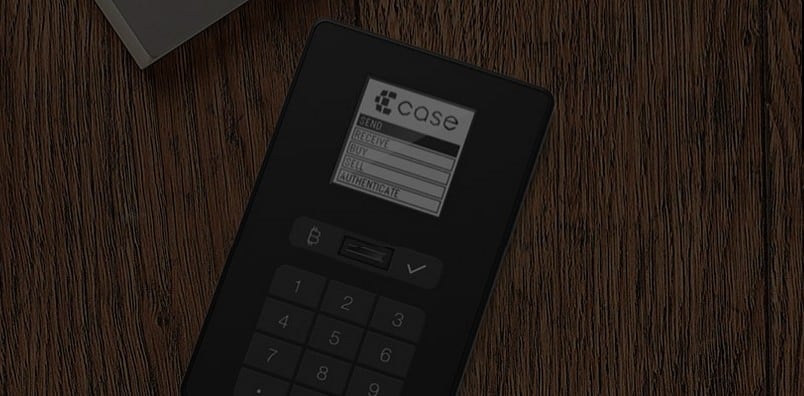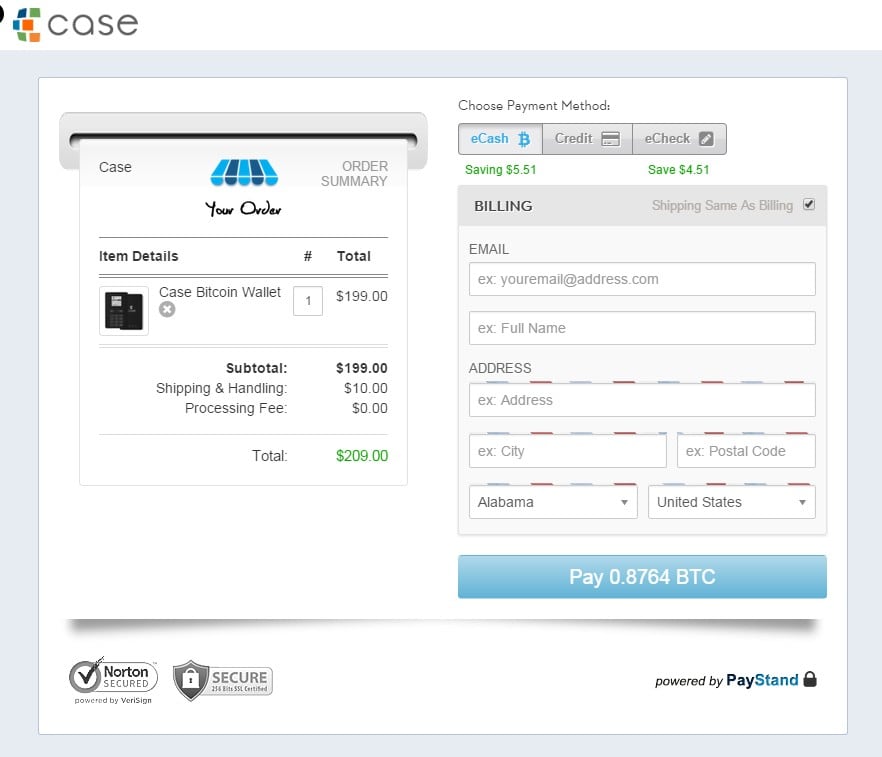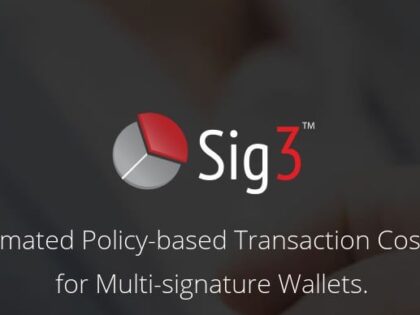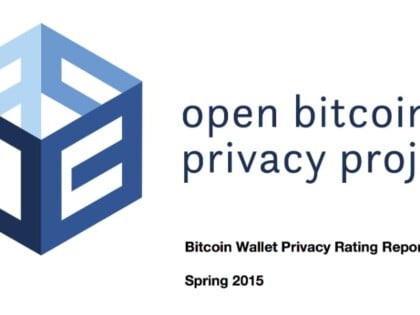
Earlier today CEO Melanie Shapiro debuted the new Bitcoin hardware wallet Case in front of the audience and judges at Disrupt NY, and it looks good. The Case team designed a sober looking wallet the size of a credit card that ups the ante on security for the most cautious of Bitcoin holders (a crowd that you should be part of if you’re not already).
The current wallet ecosystem is filled with plenty of options at each extreme, the convenient and the secure, but few that satisfy both requirements and the Case intends to enter the market to compete with the Ledgers and the Trezors. The wallet itself includes a small fingerprint reader, a camera for reading QR codes and boasts free GSM service connection in over a hundred countries; not only it doesn’t have to interact with your computer at all, but it doesn’t need to piggyback on your internet connection either.
The highlights of the interaction between the Disrupt NY judge’s and the Case team are below:
Q: I’d love to hear more about the genesis of the idea. How did you think this is what I want to do?
“A: I was a victim of bitcoin hacking. And I first heard about bitcoin when I was doing my PhD in consumer behavior. A lot of the conversations I was having were centered around this thing called bitcoin. I wanted to build something that wouldn’t scare of customers. What if you built a device that looks like a credit card? I made my credit card my design model. It should look like a credit card, it should be as easy to use as a credit card. So that’s where we began.”
Q: What do you think of the better funded further ahead wallets that talk about cold storage disconnected from the Internet?
“A: The benefit of our device over traditional web wallets is security. Our devices are embedded. Everything that we wrote lives on the firmware. You don’t have to trust any app. It’s a multi-signature wallet and there are three keys. Being in possession one of the keys is a lot, you own it, you feel it. That is very empowering. … In the events that your device is compromised and for some reason your key is extracted from the device, that’s just one of three keys and you can’t spend anything.”
As they mentioned, the wallet requires 2 out of 3 keys for each transaction, the third remains stored safely in a vault (according to the Case team), where it can be retrieved from in order to restore your wallet should you lose it after a verification process.
“Don’t worry – your bitcoins are safe. Since only one of the three keys has been lost, whoever finds or steals your Case can’t access your bitcoins. If you lose your Case, just use our online recovery process. We’ll ask you to verify your email address and phone number. This information layer will unlock the offline recovery key. We’ll then mail you a fingerprint scanner that you can use to unlock the biometrically secured server key and recover your bitcoins. The vault key can also be controlled by you.”
A thousand Cases are expected to ship this summer as part of a pre-sale, which is already open to the public (you can of course, pay with Bitcoin), retailing at $199, far above the price range of other hardware wallets; should they work as advertised and provided you have access to a GSM network on your country, it sounds like they’d be a worthy purchase.








